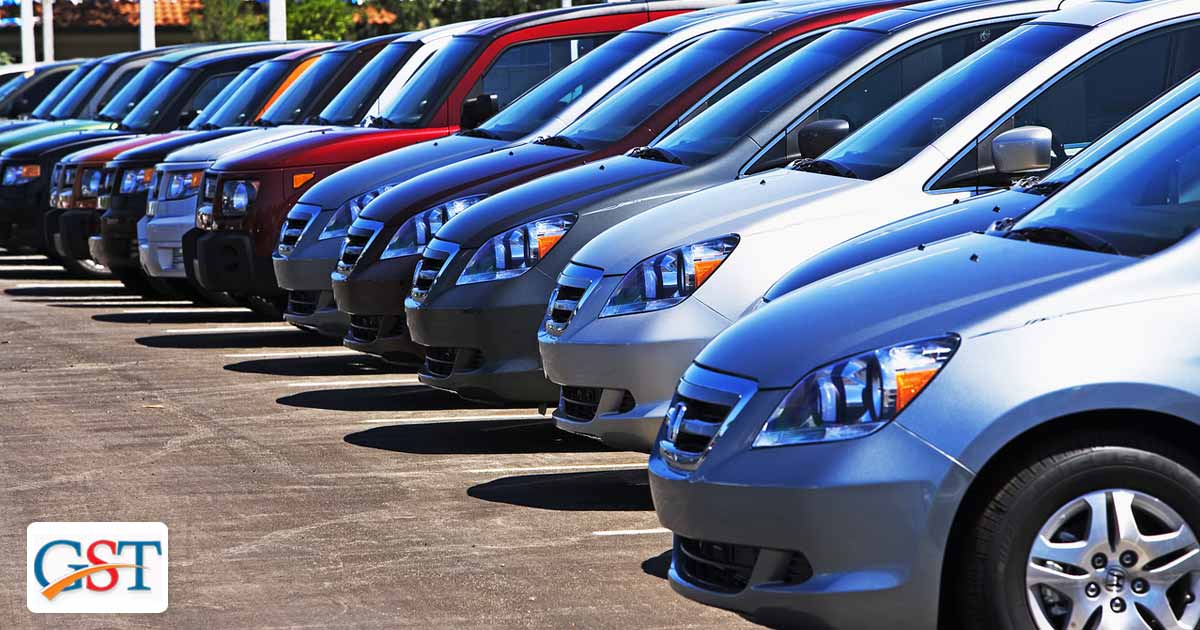GST or Goods and Services Tax System has been finally implemented in the country from 1st July 2017. Excluding SUVs and large cars, Indian Automobile industry mostly benefited after the implementation of the new tax regime as there has been a significant reduction in the prices of the new cars across all segments in the GST regime. But this is the case only for new cars. So, what about the pre-owned cars or used cars and how is the new tax regime going to influence their sales and prices.
In case if the dealers don’t make any profit in selling cars, they are not entitled to pay taxes in the new tax regime. Either the buyer or seller will have to bear the GST rates on used cars in the new regime. Although, the dealers will also be influenced with this but relatively at a lower extent.
According to the tax experts, previously, it was not clarified that whether an individual selling car to the authorised dealer would impose the tax under Reverse Charge Mechanism (RCM) or not. As per the Goods and Services (GST) Act, a registered dealer buying from an unregistered dealer will be entitled to pay tax under RCM, that simply means the registered dealer would subtract all taxes from the payment made to be the provider.
Let us understand with an example: used car Hyundai i20 Magna which is a manufacturing model of the 2009 year along with 21,000 km on the odometer – purchased by an individual at a price of Rs 3 lakh. Before GST, the used car attracted a five percent tax or Rs 15,000 whereas, in the post-GST era, the same used car would impose 28 percent tax or Rs 84,000. A dealer added the profit margin in the price tag of the car. A used car previously available in the market at nearly Rs 3.50 lakh, will now be sold at around Rs. 4 lakh.
GST Impact on Buying a Used Car
If you are dealing in the market for a used car and are sifting through used car dealerships, you must have observed that the tax increased to 28 percent from 5 percent after the implementation of the Goods and Services Tax Regime. Previously, the used car dealers had to pay only 5 percent tax value-added tax on the vehicles which are resold. In the new tax regime, however, the dealers will be required to pay 28 percent GST, similar to that imposed on new cars on the sale/purchase of used cars.
The difference in prices of used cars will ultimately be borne by the buyer or the end consumer. Dealers generally keep their margin in the range of 10 to 20 percent. It depends on the several factors of cars such as car type, age, and demand. In a sale of a small car at Rs 2 lakh, the dealer is making nearly Rs 20,000 profit margin, then he will be entitled to pay Rs 5,600 additionally as tax – which will be included in the price of the car.
GST Impact on Selling a Used Car
If you are thinking to sell a used car, try searching an organized car dealer near by you who is offering second-hand vehicles at lower prices as compared to what you would expected for it. Generally, the dealers try to eliminate the tax burden either through buyer and seller side, or both. If you are demanding Rs 1.8 lakh for the used car, the dealer negotiates with you to cover the tax incidence so that he can earn good profit from the deal.
The automobile Industry is getting benefits after the implementation of new Goods and Services Tax, due to reduction in prices.
Report On Pre-owned Cars Post GST
The report released by IndianBlueBook, a vehicle pricing platform, on 13th September showed the measures of dawn fall in pre-owned car market from the previous fiscal. As per the industry report in FY17, the pre-owned car market is expected to grow by 15% but due to consecutive challenges, the market just grew by only 9%. The report also mentioned that the organized sectors and semi-organized sectors which cover approx 21% of the market account are going to be benefited by the reforms and expected to grow by 36% and 12 % respectively against 17% unorganised sectors.
Furthermore, On the second edition of ‘India pre-owned car market Report’ 2017, the used car market is deeply discussed after the storms like demonetisation, GST and BSIV in a row. The MD of Mahindra first choice Wheel Ltd has taken the reform as positive and expected the organised sector to be more managed after status quo of GST and demonetisation.










Thanks for posting this blog as it is very well researched & informative as well.
Having read and or listened to various opinions, it’s still infancy of what direction may the Nett result of GST increase means to the Yr. end sales figs? At present, it’s still watching and see? My opinion as a car seller is, the show must go on and GST paid, used cars sold, unorganised has an opportunity I to turn organised, hence matter of understanding will prevail / the end has come. Let’s promote an organised platform.
How will be the sale of a used car in the books of the firm taxed when sold to I) another individual or firm ii) used car dealer iii) exchanged for a new car?